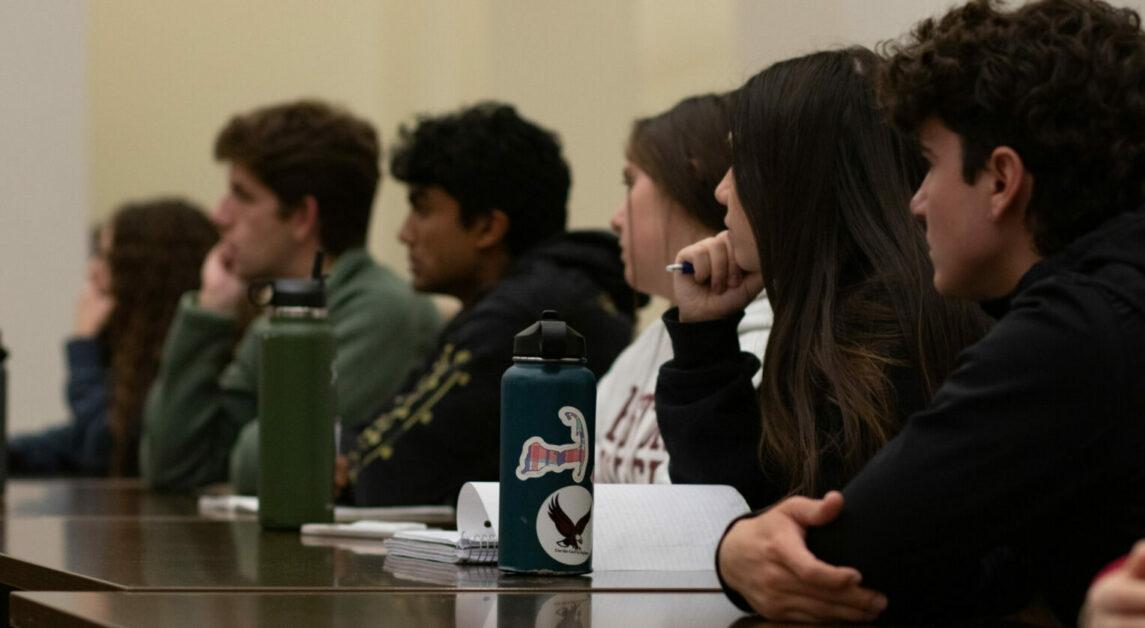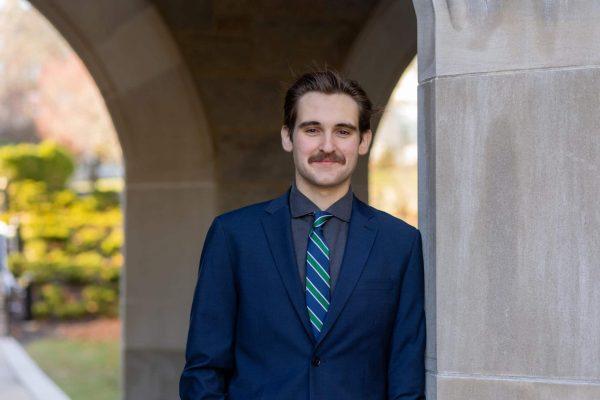Boston College has indefinitely postponed plans to construct a pavilion that would make Upper Campus more accessible, Council for Students with Disabilities (CSD) Chair Sarah Farnan said at the Student Assembly (SA) meeting on Tuesday night.
According to Farnan, plans to make Upper Campus more accessible for those with physical disabilities were postponed due to the cost of “extravagant additions” made to the original project, such as restaurants.
“A year later, we were informed that indeed it was too good to be true,” Farnan, MCAS ’23, said. “The cost of materials were too expensive, and our modest project was now too expensive due to additions brought on by the same administration that later deemed the project too much.”
Farnan said the four flights of stairs leading to Upper Campus prevent students with physical disabilities from living there, forcing them to live on Newton Campus instead. She added that not all Newton shuttle buses are wheelchair-accessible and the alternative, Eagle Escort, is known for being late and short-staffed.
“I’ve come here today to the Student Assembly in hopes that I can bring to light this event and petition that you, as student leaders, come forward to make a tangible change,” Farnan said.
Jonah Kotzen, CSD policy coordinator and MCAS ’24, shared that he, Farnan, and Peter Gornik, CSD vice chair and MCAS ’23, had met with Dean of Students Corey Kelly and Vice President for Student Affairs Shawna Cooper Whitehead that morning to discuss the issue.
“They told us that the Upper Campus pavilion was the only feasible way that they believed they could bring physical accessibility to Upper Campus,” Farnan said. “What they meant by that is basically there are other ways where you could construct a ramp or put in a lift, but they felt that it would impede further projects.”
The University cannot build ramps due to the steepness of the hill leading to Upper Campus, but the cost of an elevator or wheelchair lift is significantly lower than the entire Upper Campus pavilion project, according to Kotzen.
“In terms of the funding, the pavilion was estimated at $100 million—that’s what they told us—while the elevator they would build, or wheelchair lift, would be a million dollars or somewhere around that,” Kotzen said.
According to Farnan, the University informed CSD that the project was being shelved due to inflation.
“My freshman year, in the spring, we were told this was happening and they had the funds and everything was going to be great,” Farnan said. “Now the main reason [for postponing the project] is inflation.”
During the meeting with Kelly and Cooper Whitehead, Kotzen said they talked about using Upper Campus shuttles as a temporary solution. They also discussed the administration’s working group focused on expanding Eagle Escort.
“They’re talking about potentially outsourcing to Boston Coach, doubling the amount of vans they currently have with Eagle Escort, and expanding the amount of vans that are wheelchair accessible,” Kotzen said. “So it is being worked on.”
Later in the meeting, the SA also unanimously passed “An Act Concerning UGBC Survey on Student Satisfaction of Boston College Dining,” which approves the distribution of a student survey on BC Dining as well as the publication of its results.
“[We’re] kind of testing student satisfaction levels with BC Dining at the moment—how it currently is, how they’re currently able to find a meal plan, and any challenges they have with that,” said Daniel Wise, an SA representative on UGBC’s Dining Advisory Board and MCAS ’25.
The act—sponsored by Wise and Katie Garrigan, SA representative for the Montserrat Coalition and MCAS ’25—states that the survey will be emailed to the entire BC student population, and the administrative heads of BC Dining will analyze its results.
The act also includes a $500 allocation of UGBC’s budget to advertise the survey through tabling on campus. Thompson Penn, chair of the Student Life Committee and CSOM ’25, co-sponsored the act and clarified that $500 is just the maximum amount UGBC can spend on advertising.
“We don’t necessarily have to use all $500, it’s just saying that we’re giving you that $500,” Penn said. “If you don’t use it, great, but you can’t exceed that $500.”














